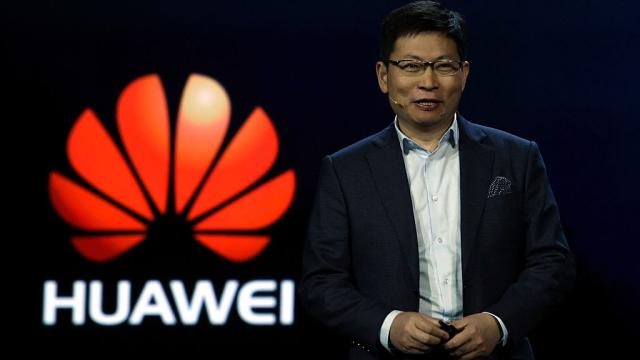Photo: Getty
Lawmakers are determined to bury any dreams that Chinese electronics manufacturer Huawei has ever had of gaining traction in the US. After pressuring AT&T to kill a major deal with the company this week, members of US ongress are now moving forward with a bill that would ban the US federal government from working with contractors that use any equipment from Huawei or ZTE.
For the last year, Shenzen-based Huawei has been in talks with AT&T to carry its smartphones. According to Counterpoint research, the company surpassed Apple as the world’s second largest smartphone brand last year, but its sales in the US are comparatively dismal. The primary reason is that none of the top four wireless providers in the US carry Huawei’s phones. That was all going to change this week when the company was set to take the stage at CES, announce its new partnership with AT&T, present Gal Gadot of Wonder Woman as its new brand ambassador, and make a huge splash. But on Tuesday, it belly flopped.
The Information reports members of the House and Senate intelligence comittees sent the FCC (which regulates AT&T’s business) a letter in December to raise concerns about the deal, citing national security. A few weeks later, it was dead. But Congress isn’t stopping there.
As TechCrunch points out, Republican Representative Michael Conaway has introduced a new bill that would ban the US government from doing business with any service providers that work with Huawei or ZTE. Both are Chinese firms that have been singled out due to concern that they are working with China’s government and pose an intelligence risk. TechCrunch broke down the broad strokes of the bill. If passed, it would prohibit the US from engaging with any third party that uses:
Telecommunications equipment produced by Huawei Technologies Company or ZTE Corporation (or any subsidiary or affiliate of such entities).
Telecommunications services provided by such entities or using such equipment.
Telecommunications equipment or services produced or provided by an entity that the head of the relevant agency reasonably believes to be an entity owned or controlled by, or otherwise connected to, the government of a covered foreign country.
All of this stems from a Congressional investigation in 2011 that ultimately concluded Huawei, ZTE, and some smaller companies were being directed by the Chinese Communist Party. Michael Hayden, director of the CIA at the time, also claimed that Huawei shared information about foreign telecommunications systems with the Chinese government. This led to legislation that essentially banned all of Huawei and ZTE’s telecom networking equipment like routers and antennas from being sold in the US. As of 2016, Huawei was the biggest provider of telecom equipment in the world, and ZTE ranked seventh.
This bill would have to pass the US House, Senate, and be signed by the President before taking effect. But in the meantime, these companies’ public reputations are getting killed. It would seem Huawei’s ambitions in the US smartphone market are indefinitely on hold.
[US Congress via Techcrunch]
